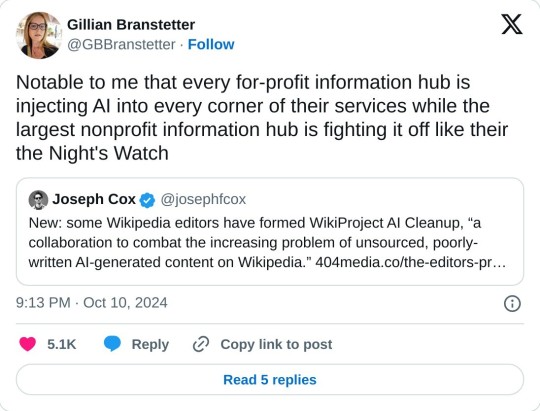Text
THE ENTIRE WEST IS AT RISK OF BEING PUT UP FOR SALE AND I AM BEGGING YOU TO CALL YOUR SENATORS

Trump’s budget bill has many, many things in it, but buried amongst it is the MILLIONS OF ACRES OF PUBLIC LAND FOR SALE.
This is the entirety of the Arizona state forests, the entire Cascades mountain range. Swathes of pristine desert around the national parks in Utah. On the doorstep of Jackson Hole.
THIS BILL IS BIG, BUT IT CAN BE AMENDED AND ABSOLUTELY MUST NOT PASS AS IS please.
If you have ever enjoyed the wilderness, we stand to lose it all forever.
CALLING your senators - NOT JUST IN THE WEST. ALL SENATORS, is CRUCIAL.
Outdoor alliance has a great resource for reaching out.
I don’t have a huge following but please, everywhere I have ever loved, the forests I grew up playing in, the land I got married on, is all at risk and I am begging.
EDIT: I HAVE ADDED A LOT MORE INFORMATION IN A REBLOG THIS MORNING, WOULD APPRECIATE YOU CHECKING OUT THIS VERSION!!!
51K notes
·
View notes
Text
do you ever start writing a comment on the internet and then think “oh what the fuck am i going on about” and delete it
103K notes
·
View notes
Text
The Queen of the World ❤️

Trying more realistic take to Her Majesty in one of my favoutfit of her.
I made it for her birthday but just finished it now 😭🙏
--
DO NOT REPOST.
Thank you ❤️
134 notes
·
View notes
Text
"As climate disasters strain state budgets, a growing number of lawmakers want fossil fuel companies to pay for damages caused by their greenhouse gas emissions.
Last May [2024], Vermont became the first state to pass a climate Superfund law. The concept is modeled after the 1980 federal Superfund law, which holds companies responsible for the costs of cleaning up their hazardous waste spills. The state-level climate version requires major oil and gas companies to pay for climate-related disaster and adaptation costs, based on their share of global greenhouse gas emissions over the past few decades. Vermont’s law passed after the state experienced torrential flooding in 2023. In December [2024], New York became the second state to pass such a law.
This year, 11 states, from California to Maine, have introduced their own climate Superfund bills. Momentum is growing even as Vermont and New York’s laws face legal challenges by fossil fuel companies, Republican-led states, and the Trump administration. Lawmakers and climate advocates told Grist that they always expected backlash, given the billions of dollars at stake for the oil and gas industry — but that states have no choice but to find ways to pay the enormous costs of protecting and repairing infrastructure in the face of increasing floods, wildfires, and other disasters.
The opposition “emboldens our fight more,” said Maryland state delegate Adrian Boafo, who represents Prince George’s County and co-sponsored a climate Superfund bill that passed the state legislature in March. “It means that we have to do everything we can in Maryland to protect our citizens, because we can’t rely on the federal government in this moment.”
While the concept of a climate Superfund has been around for decades, it’s only in recent years that states have begun to seriously consider these laws. In Maryland, federal inaction on climate change and the growing burden of climate change on government budgets have led to a surge of interest, said Boafo. Cities and counties are getting hit with huge unexpected costs from damage to stormwater systems, streets, highways, and other public infrastructure. They’re also struggling to provide immediate disaster relief to residents and to prepare for future climate events. Maryland has faced at least $10 billion to $20 billion in disaster costs between 1980 and 2024, according to a recent state report. Meanwhile, up until now, governments, businesses, and individuals have borne 100 percent of these costs.
“We realized that these big fossil fuel companies were, frankly, not paying their fair share for the climate crisis that they’ve caused,” Boafo said.
Recent bills have also been spurred by increased sophistication in attribution science, said Martin Lockman, a climate law fellow at the Sabin Center for Climate Change Law at Columbia University. Researchers are now able to use climate models to link extreme weather events to greenhouse gas emissions from specific companies. The field provides a quantitative way for governments to determine which oil and gas companies should pay for climate damages, and how much.
Vermont’s law sets up a process for the government to first tally up the costs of climate harms in the state caused by the greenhouse gas emissions of major oil and gas companies between 1995 and 2024. The state will then determine how much of those costs each company is responsible for, invoice them accordingly, and devote the funds to climate infrastructure and resilience projects. New York’s law, by contrast, sets a funding target ahead of time by requiring certain fossil fuel companies to pay a total of $75 billion, or $3 billion per year over 25 years. The amount each company has to pay is proportionate to their share of global greenhouse gas emissions between 2000 and 2024. Both Vermont and New York’s laws apply only to companies that have emitted over 1 billion metric tons of greenhouse gas emissions over their respective covered periods. That would include Exxon Mobil, Shell, and other oil and gas giants.
Maryland’s law is so far the only climate Superfund-related legislation to pass a state legislature this year, although Governor Wes Moore vetoed the measure late on Friday [May 16, 2025]. The original draft of the bill would have required major fossil fuel companies to pay a one-time fee for their historic carbon emissions. But over the course of the legislative session, the bill was amended...
Climate advocates decried the governor’s decision, calling it “an inexplicable reversal of a position that threatens to stymie Maryland’s climate progress for negligible budget savings.” In a joint press release by three environmental groups, Kim Coble, executive director of the Maryland League of Conservation Voters, said, “This veto is not fiscal responsibility, it’s a definitive step in the opposite direction of our climate goals.”
In California, environmental groups are optimistic about the chances of a bill passing this year. This is the second year a climate Superfund bill has been introduced in the state, and the sponsors of the new bill have focused on building a broad coalition of environmental, community, and labor groups around the proposal, said Sabrina Ashjian, project director for the Emmett Institute on Climate Change and the Environment at the UCLA School of Law. This year’s legislation was introduced shortly after the devastating Los Angeles wildfires in January, which could amplify lawmakers’ sense of urgency. The bill has now passed out of each legislative chamber’s environmental committee and is awaiting votes in their respective judiciary committees. If passed, the bill will next move to the full Senate and Assembly for a final vote.
In the meantime, legislators are keeping a close eye on ongoing legal challenges to Vermont’s and New York’s laws...
Climate experts told Grist that with huge amounts of money and liability at stake, lawsuits from the fossil fuel industry weren’t unexpected. Boafo said that given how much financial and political support the Trump campaign received from oil and gas corporations, it’s not a surprise that the Justice Department has sued New York and Vermont. Pursuing these laws invites inevitable opposition — but avoiding the growing costs of climate devastation is even riskier, advocates said.
Lawmakers are “passing these bills because in writing budgets, in dealing with the day-to-day operation of their states, they’re facing really serious questions about how our society is going to allocate the harms of climate change,” said Lockman. “I suspect that the lawmakers who are advocating for these bills are in it for the long haul.”"
-via Grist, May 19, 2025
2K notes
·
View notes
Text
can anyone find me that mesopotamian clay tablet telling you to marry a party girl because she'll bring you joy
80K notes
·
View notes
Text
Darcy’s introduction in Pride and Prejudice is really ‘what if you had just had the worst month of your life because your ex-bestie tried to lover boy scam your baby sister out of her share of your dad’s life insurance and your friend dragged you to a shitty party in a dive bar in the neighbourhood where he’d just signed a short term lease, and you decided to let your bad mood show because you were never going to see any of the assholes in this stupid shitty bar EVER again. And your friend ended up making out with a girl he’d just met there while you were stuck talking to her sister who was less cute and then her mother appeared and started trying to matchmake and started saying how if she was twenty years younger she’d clime you like a redwood and ooooh is that a black Amex, guess the next round is on you hahhahahahaha, while her other sister (how many fucking sisters does she have?!) flashed an obviously fake ID at the bar and ordered six vodka-diet red bulls and no one in her family except the less-cute sister even tried to stop her. And you went home and consoled yourself that you would never see any of these people again but then you met them over and over again because they live next door and your friend and the cute sister keep meeting up to make out but not actually date and then. You fall in love with the less-cute sister because it turns out she’s really witty and charismatic but she already knows and remembers and resents the fact that on a day when you were in a shitty mood you called her mid out loud in a dive bar.’
23K notes
·
View notes
Text
what "no sugar added" should mean: the natural sugars of the other ingredients like fruit are the only source of sweetness in this product
what is actually means: we added a fuckton of artificial sweeteners
68K notes
·
View notes
Text

The ice cream boss can be seen in footage saying: "You're killing poor kids in Gaza and paying for it by cutting Medicaid for kids here."
26K notes
·
View notes
Text
Wow, now there's a bot going around on Ao3 telling people that the "moderators" will delete works from "deprecated" fandoms and impose bans.
Fearmongering bullshit, but it's fearmongering bullshit that seems to be taking advantage of the recent spotlight series in order to trick authors into deleting their fics.
Just. Why.
What the hell does anyone get out of making these bots.
45K notes
·
View notes
Text
A group of Wikipedia editors have formed WikiProject AI Cleanup, “a collaboration to combat the increasing problem of unsourced, poorly-written AI-generated content on Wikipedia.” The group’s goal is to protect one of the world’s largest repositories of information from the same kind of misleading AI-generated information that has plagued Google search results, books sold on Amazon, and academic journals. “A few of us had noticed the prevalence of unnatural writing that showed clear signs of being AI-generated, and we managed to replicate similar ‘styles’ using ChatGPT,” Ilyas Lebleu, a founding member of WikiProject AI Cleanup, told me in an email. “Discovering some common AI catchphrases allowed us to quickly spot some of the most egregious examples of generated articles, which we quickly wanted to formalize into an organized project to compile our findings and techniques.”
9 October 2024

28K notes
·
View notes
Text
watch PearlMania500's response, that guy gets supply chain. I work in supply chain and that is exactly what everyone should be thinking about
But no, most people don't even know how their food gets to the grocery store
17K notes
·
View notes
Text

Generative AI has destroyed academia.
In the next few decades we’re going to have thousands of people who don’t really know anything, and can’t do any critical thinking.
19K notes
·
View notes



